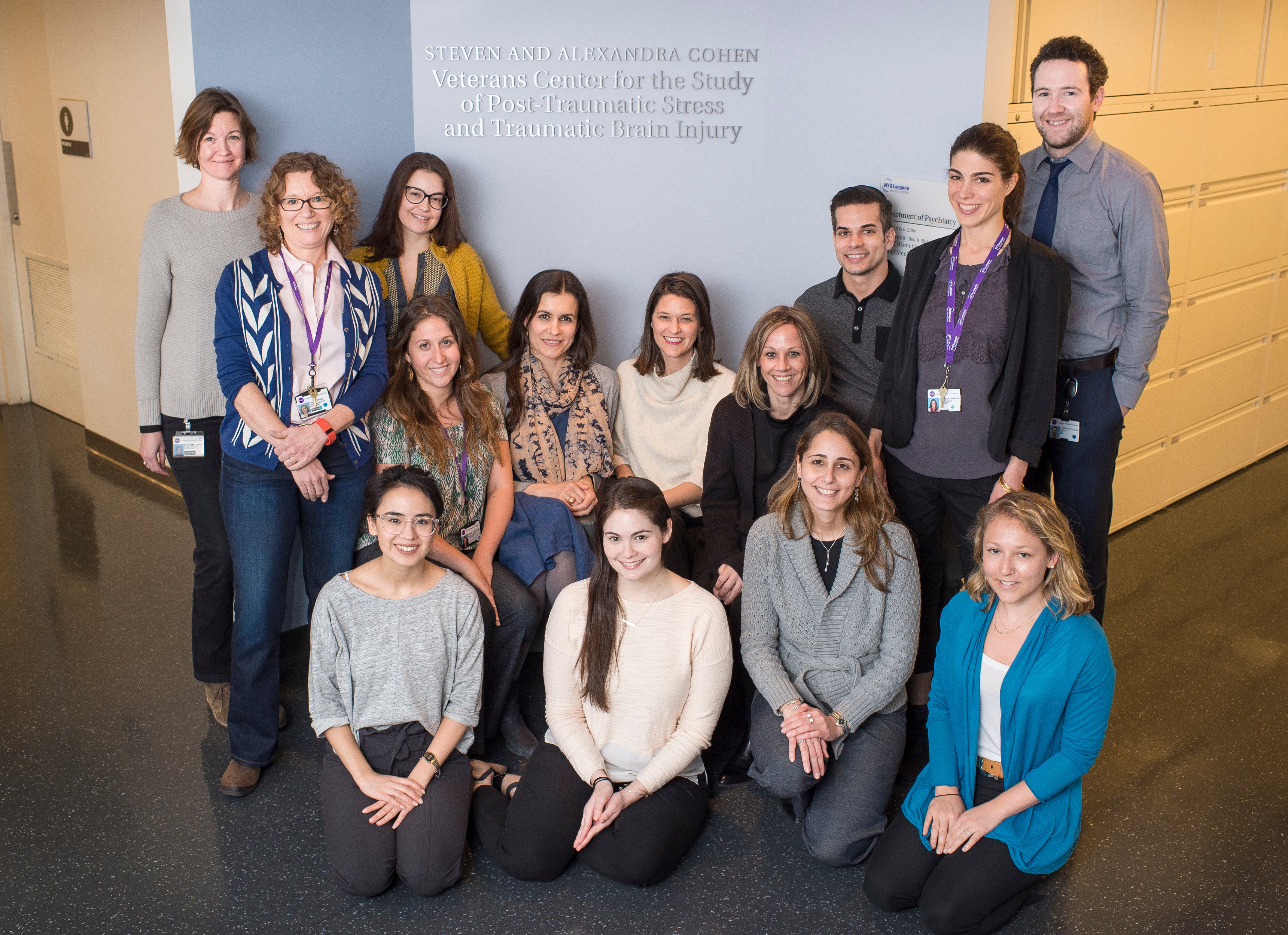It took a lot for the Marine veteran who deployed to Iraq and Afghanistan early in the wars to walk into the Military Family Clinic at NYU Langone Medical Center for help.
Suffering from post-traumatic stress disorder and traumatic brain injury for more than 10 years without a diagnosis, he sought treatment only after his employer recommended it.
As a diplomatic security officer at the United Nations, "Al" was failing to handle ongoing pressures of the job. He asked that his full name not be used to protect his privacy.
"I started having problems at work, and I've been in treatment ever since," said the former corporal. "The more you actually start processing everything that you have seen and experienced, the farther along you are on the steps to healing."
The Steven A. Cohen Military Family Clinic at NYU Langone is open to veterans and family members, including spouses, children, parents and significant others, even if their military loved ones refuse to seek treatment.
The facility also accepts veteran patients whose other-than-honorable discharges keep them from getting care at a Veterans Affairs medical facility.
In the next four years, the network will grow to comprise 25 clinics across the U.S., the vision of billionaire hedge fund manager Steven Cohen, who pledged $275 million in April to fund the project.
The goal is to offer free mental health services to veterans, National Guard and rReserve members, families — anyone whose mental wellness has been affected by military service, according to Dr. Charles Marmar, director of the Steven and Alexandra Cohen Veterans Center for the Study of PTSD and TBI.
"The need is enormous," Marmar said. "One in two post-9/11 veterans don't want to get care at the VA, and many more don't want to go to the VA for privacy reasons."
An estimated one in five 1 in 5 Iraq and Afghanistan veterans have symptoms of PTSD or depression, and more than 327,000 suffered some degree of brain injury. The VA provides mental health treatment and services for affected veterans at its medical centers and clinics as well as 300 Vet Centers.
But many veterans, including those with "bad paper discharges," can't go to the VA. And Vet Centers, which serve combat veterans, provide limited counseling to family members, primarily offering marriage counseling to spouses.
The Military Family Clinics fill the gap, Marmar explained.
"We don't ask any questions about discharge status. The VA has very little flexibility to help those veterans," he said.

Staff of the Steven A. Cohen Military Family Clinic at NYU Langone Medical Center.
Photo Credit: Courtesy of NYU Langone Medical Center
Last month, two Steven A. Cohen Military Family Clinics opened in Texas — one in San Antonio and the other near Dallas. Later this year, two more, in Los Angeles and Philadelphia, are scheduled to open.
The idea is to treat post-9/11 veterans to ward off future health problems that are associated with untreated mental health conditions, such as physical illnesses, substance abuse, unemployment and homelessness. But no one will be turned away, said Anthony Hassan, Cohen Veterans Network executive director.
"We are here to get ahead of the problem and provide [Operation Iraqi Freedom and Operation Enduring Freedom] veterans access to care as early as we can, to try to prevent conditions like PTSD from becoming chronic and unmanageable," Hassan said.
The VA has been under fire for the past several years for ongoing delays in providing prompt health care to its patients. Increasingly, VA also has been criticized for being unable to treat veterans who were dismissed from the service for misconduct that may be related to undiagnosed combat-related mental health conditions.
By law, these veterans with other-than-honorable discharges are ineligible for VA care.
But the Cohen Military Family Clinics plan to provide services to this underserved population, Hassan said.
"We are going to work with the VAs. We are going to work with the VA community-based clinics, and we will be able to see patients they can't see. This is a complementary relationship, not a competition," he said.
Cohen made his billions managing hedge fund S.A.C. Capital Advisors. His interest in veterans issues developed after his son, Robert, enlisted in the Marine Corps after graduating from Brown University and deployed to Afghanistan.
The NYU Langone Military Family Clinic was established in 2012 with funding from the Robin Hood Foundation and later, Cohen. In 2015, he underwrote a nonprofit research arm, Cohen Veterans Bioscience, to develop diagnostic tests and treatments for PTSD and concussions.
As part of the larger Cohen Veterans Network, Cohen Veterans Bioscience and the Military Family Clinics will work hand in hand to understand patient needs and assess research goals. Patients will be able to to participate in studies run by the research arm but will be under no obligation to do so, according to organizers.
Hassan said the Military Family Clinics will offer a variety of treatment and services, including medical referrals, therapy and counseling.
Al said he has engaged in several therapeutic approaches, which have helped him deal with debilitating symptoms such as panic attacks, anger, lack of focus, nightmares and intrusive thoughts.
He said the clinic is a "judgment-free zone," where was able to get the help he needed to get his life back on track.
"The best thing about it is, unlike the VA, it doesn't feel like you were being rushed through. People take the time to help you," he said.
Patricia Kime covers military and veterans health care and medicine for Military Times. She can be reached at pkime@militarytimes.com.
Patricia Kime is a senior writer covering military and veterans health care, medicine and personnel issues.





